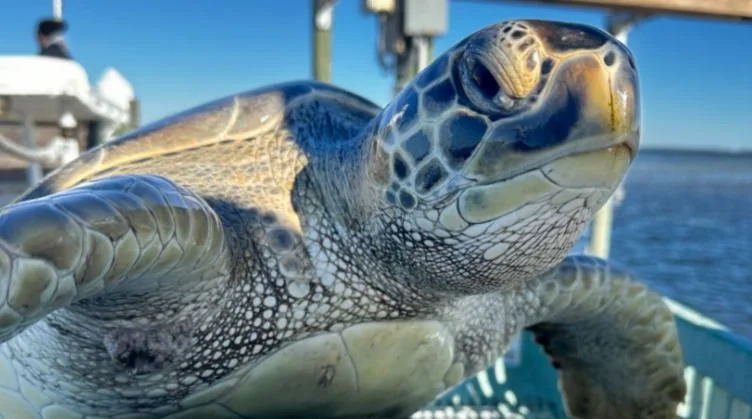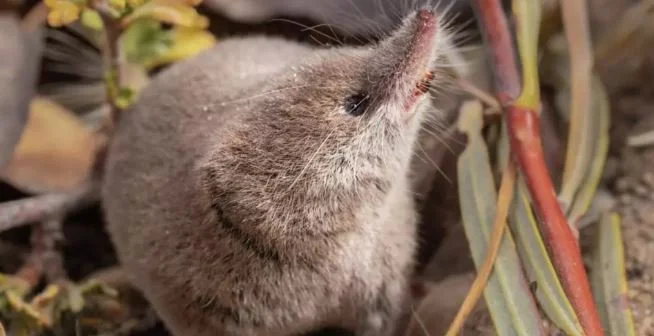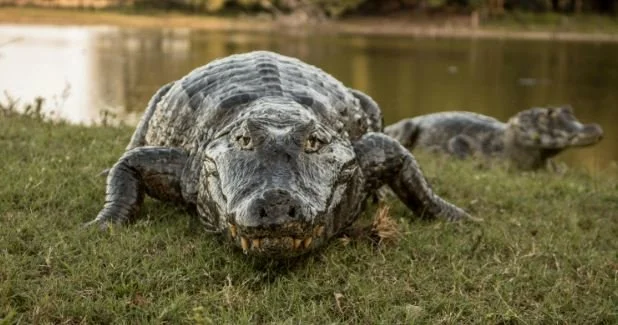Florida Freeze Makes 1,200 Sea Turtles Comatose
A rare winter storm last week hit Florida’s panhandle, catching many humans unprepared. Also unaccustomed to the frigid temps were hundreds of endangered sea turtles, whose metabolism shut down when their habitat gets too frosty.
“When water temperatures drop to 50 degrees Fahrenheit or below, sea turtles can become cold-stunned, making them weak and unable to swim,” according to the Florida Fish and Wildlife Conservation Commission. “Cold-stunned sea turtles might float listlessly in the water, on or near shore. Although these turtles can appear to be dead, they are often still alive.”
Still alive, but in their state vulnerable to predators – sea gulls, vultures, coyotes, raccoons. And if the opportunistic omnivores don’t get them, the cold temperature itself can kill them, as these cold-blooded reptiles cannot regulate their body temp.
Cold-stunning events happen every year, but usually it affects only a few dozen turtles here and there in Florida and elsewhere on the Eastern Seaboard. But last week’s storm was severe, stunning around 1200 of the endangered sea turtles. Several government agencies, including the FFWCC, mobilized with dozens of citizen volunteers to save the comatosed creatures.
Volunteers are trained and certified to handle sea turtles, which are gathered up one by one and rushed to Gulf World Marine Institute in Panama City Beach. Here the stunned animals are gradually warmed up in saltwater tanks and given medical exams including, in some cases, blood tests.
Each one is tagged and photographed for future reference, then returned to the sea when healthy. Warmer weather on the panhandle has cleared many of the turtles for release this weekend. Sadly, around 200 of them didn’t survive the week, but without the coordinated effort of concerned humans, the carnage would have been much worse.
If you spot an injured, comatose, or dead sea turtle, report it to the Wildlife Alert Hotline at 888-404-3922. And NOAA’s website has more info on cold-stunned sea turtles and how you can help, here.
Photo credit: Florida Fish and Wildlife Conservation Commission







